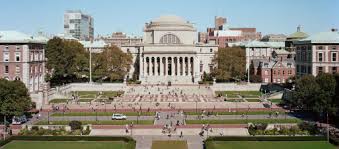Columbia School Linguistic Society
Graduate Student Fellowship
Request for proposals for the 2015-2016 academic year
Deadline for applications: May 26th, 2015
The Columbia School Linguistic Society (henceforth the Society) invites applications from graduate students in linguistics for the third round of its Graduate Fellowship program. The successful applicant (henceforth referred to as the Fellow) will undertake a linguistic research project from the perspective of Columbia School under the guidance of a Mentor. The Fellowship and the research project associated with it will cover a period of one academic year. The Fellow will be expected to make every effort to present work-in-progress at the Columbia School Seminar.
The research project undertaken by the Fellow will address a grammatical, lexical, or phonological problem in the language of the Fellow’s choice. The Fellow will produce a final report, written in English, putting forth a Columbia School analysis of the problem, preceded by a review of the relevant literature. The Fellow must be either (a) a matriculated student in good standing in a recognized graduate program in linguistics or closely related area anywhere in the U.S. or (b) an applicant to such a program, and (c) be a U.S. citizen (this because of the Society’s tax constraints). The Mentor must be a member of the Society.
The Fellow will receive a stipend of $15,000 for the period covering from September 1, 2015 to August 31, 2016. The stipend is calculated on the basis of a 12-month calendar year. Assuming satisfactory progress in the judgment of the Society’s Executive Committee, stipend payments will be made on a monthly basis (12 payments of $1250) in the form of a check from the Society. A successful Fellow may reapply for continuing support for the following year. The Mentor will not receive any financial compensation.
It is expected that the Fellow will work on the project for no less than 15 hours a week. In addition, it is expected that the Fellow will make at least four presentations before the Columbia School Linguistics Seminar during the course of the Fellowship year. It is also expected that the Fellow will attend the Seminar on a regular basis. The Seminars are held at Columbia University in New York City. A Fellow whose residence is distant from New York will be expected to make arrangements for remote attendance and presentations.
The application is to be prepared by the prospective Fellow in consultation with the prospective Mentor. The application consists of a statement of the problem, an account of existing analyses if any, a brief preliminary review of the relevant literature, and a description of the data to be used. The application is not to exceed 10 double-spaced pages written in 12-point font. It is required that the prospective Fellow contact the prospective Mentor and that the Mentor review the application before submission.
The name of the prospective Fellow and that of the prospective Mentor must be included in the application. The Fellow’s telephone number and email address, and the name of the Fellow’s graduate school, are also to be included in the application.
The deadline for receipt of the first round of applications is May 26, 2015. The proposal will be reviewed by three members of the Society appointed by the Society’s Executive Committee. Applicants will be notified by the end of June 2015. The application must be submitted electronically to Professor Ricardo Otheguy of the PhD Program in Linguistics at the Graduate Center of the City University of New York (rotheguy@gc.cuny.edu).


